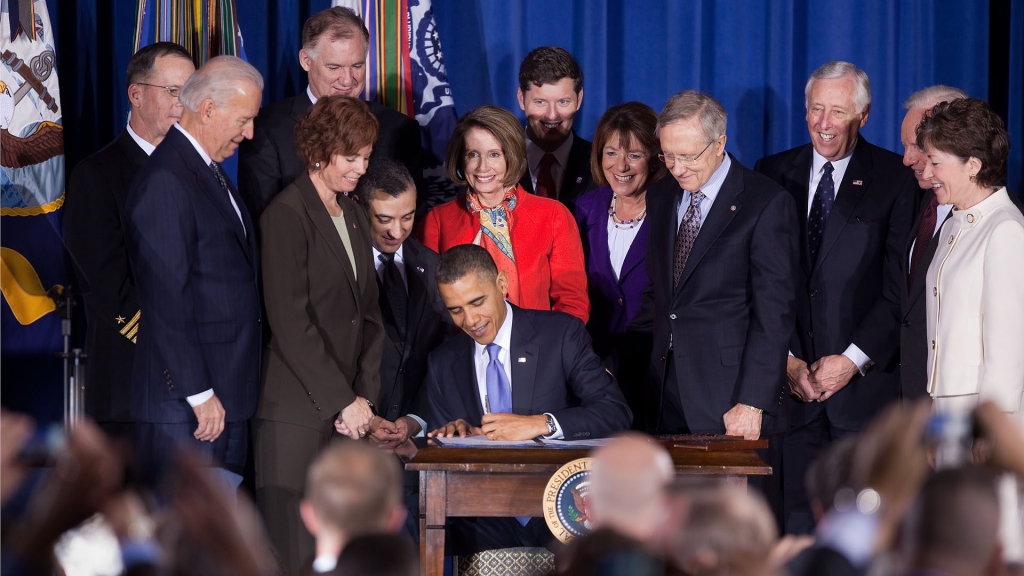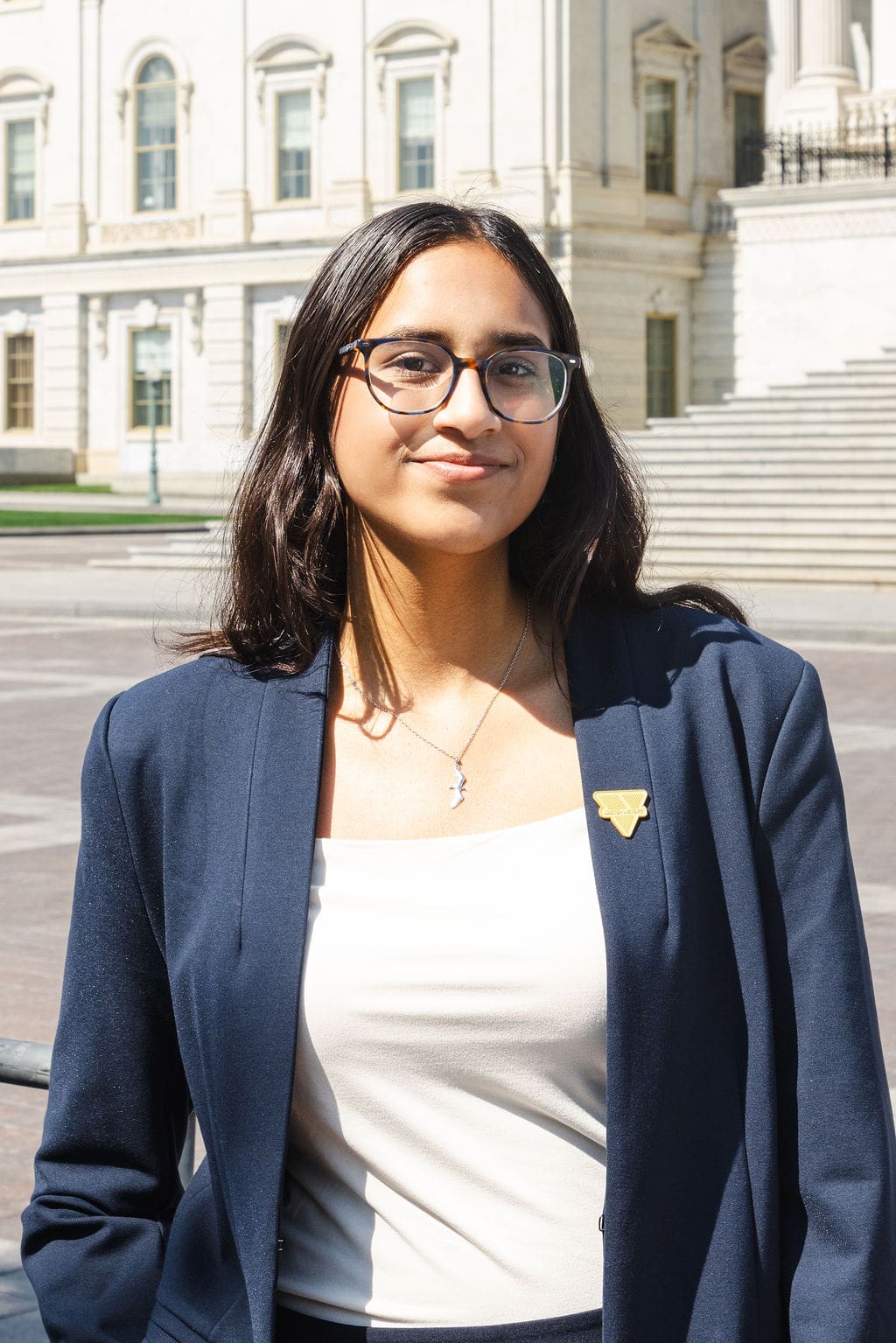
On September 20, 2011, the campaign to end the military’s discriminatory Don’t Ask, Don’t Tell (DADT) policy, which precluded gay and bi individuals from openly serving in the U.S. military, succeeded. The Senate Armed Services Committee voted to repeal DADT, after seventeen years of state-sanctioned homophobia in the military.
Ten years later, the anniversary of DADT’s repeal represents a decade of freedom for some LGBTQ servicemembers, who are serving as their authentic selves, no longer hiding behind the heteronormative facades they had to wear to work for up to seventeen years. Gains include offers of re-enrollment to those discharged for their sexuality as well as further protection of lesbian, gay and bisexual servicemembers through the expansion of the Army’s Equal Opportunity policy to include sexual orientation in 2015.
In honor of the coming ten-year anniversary, the Victory Institute honored Speaker of the House of Representatives Nancy Pelosi with the History Maker Award for her work advocating for the repeal of DADT at the 2020 International LGBTQ Leaders Conference. The celebration of the ten-year anniversary began in December 2020, and various events have continued marking notable dates in the timeline of the policy’s repeal.
Congress has responded to the ten-year anniversary in several ways. Some are celebrating, others are focusing on further improving the situation of LGBTQ servicemembers. On the legislative side, Representative Mark Takano has proposed H.R.1596 – Commission to Study the Stigmatization, Criminalization, and Ongoing Exclusion and Inequity for LGBTQ Servicemembers and Veterans Act – in order to evaluate the past and present issues LGBTQ servicemembers have faced and determine how best to address them moving forward.
On the celebratory side, the DADT Repeal 10-Year Anniversary Celebration is set to take place on September 20, 2021. Speaker Pelosi is hosting the event alongside former Senators Harry Reid and Joe Lieberman, former Representative Patrick Murphy, Air Force veteran and Interim Executive Director of the Modern Military Association of America Jennifer Dane, and Army veteran and Executive Director of Servicemembers Legal Defense Network Aubrey Sarvis. The event will occur at 12 PM EST and will feature a celebration of DADT’s repeal as well as honor the continued advocacy on behalf of transgender servicemembers and their ability to openly serve in the military.4
This is recognition that the work towards the freedom to serve openly is far from over. This discussion of transgender service builds on calls by government leaders as high as President Biden to remove the transgender ban implemented during the Trump administration. Although the ban has officially been lifted, the highlighted need for continued advocacy for transgender servicemembers’ ability to serve as themselves and the elimination of all obstacles toward that end demonstrates one of several gender– and sexuality-related issues.
Additional challenges to serving openly include the high rates of sexual assault and harassment that LGBTQ servicemembers experience6 and the failure to follow through on the promise to grant honorable discharges to LGBT servicemembers given dishonorable discharges during DADT. A further issue, revealing the lack of LGBTQ identities at the highest levels of the military, is that of Biden’s presidential nominees to the DOD to date, only two openly identify as LGBTQ. Although this officially makes Shawn Skelly the highest-ranking openly transgender defense official in American history, there is still significant progress needed to achieve parity and equitable levels of LGBTQ representation in the military.
An ongoing gender-related debate is the inclusion of women in Selective Service. The controversy surrounding this debate has inhibited Congress from fully engaging with the topic until recently. The Supreme Court decided to hold off on an ACLU challenge to the constitutionality of an all-male draft due to Senator Jack Reed’s proposed legislation in the now-passed National Defense Authorization Act (NDAA) that included specifications for women’s addition to the Selective Service System. Although the NDAA passed, marking the first time Congress has passed legislation on this topic, a press release from Senator Marco Rubio’s office announced a “Don’t Draft Our Daughters” resolution to remove Senator Reed’s legislation from the NDAA. The conversation, though, still has not addressed the role of non-binary and gender non-conforming citizens in conscription.
Undeniably, the situation of LGBTQ servicemembers is better now than it was ten years ago. Now is certainly a time to celebrate the progress represented by the ten-year anniversary of DADT. Yet the repeal was not the panacea for all gender- and sexuality-related issues in the military. There is still work to be done, and the framing of the celebration to include advocacy on these problems is cause for a positive outlook for the future of LGBTQ servicemembers in the military and a reminder that representation in the halls where these policies are crafted is essential.


